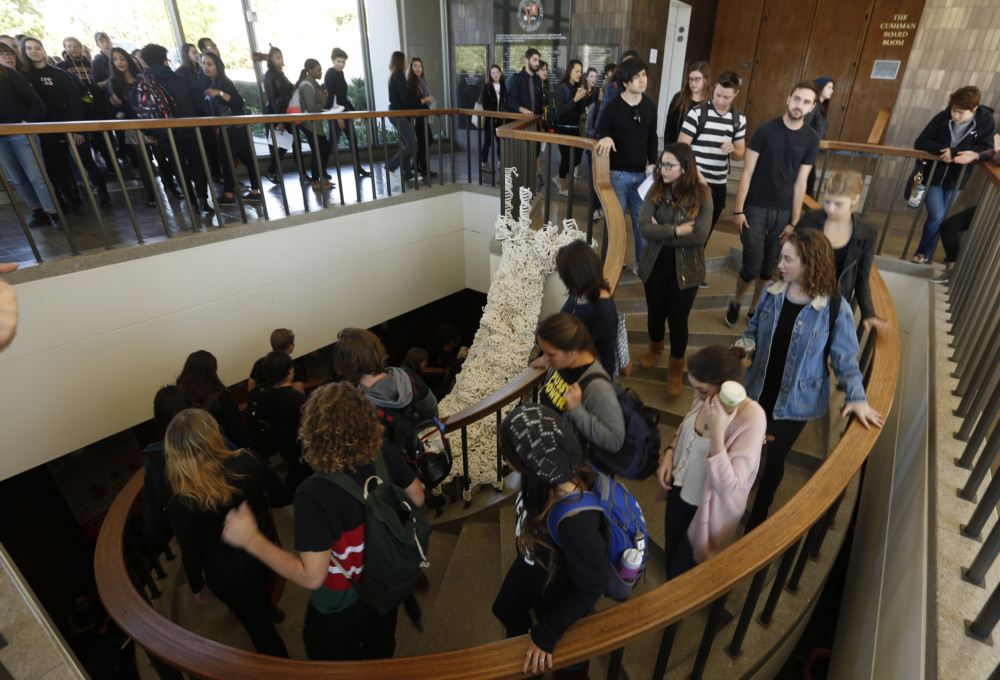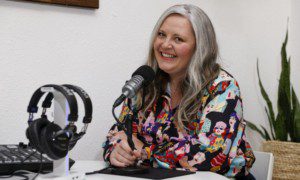By Natasha Lindstrom
The Pittsburgh Tribune-Review
WWR Article Summary (tl;dr) Regional and national data show that young adults in their 20s and 30s are becoming an increasingly strong philanthropic force, with Millennials, born from 1980 to 2000, demanding more direct involvement in causes, transparency in charitable spending and metrics demonstrating results.
The Pittsburgh Tribune-Review
Ginevra Ventre hadn’t been on the job a full week when a partner at her Downtown law firm introduced the fledgling attorney to the region’s fastest-growing, largest group of professionals devoted to women and philanthropy.
The Women’s Leadership Council — a 2,000-plus-member arm of the United Way of Southwestern Pennsylvania grant-making organization — almost instantly impressed and won the membership of Ventre, 32, who grew up near Washington D.C., graduated from Duquesne Law School and landed in Shadyside after joining Reed Smith in 2014.
She recalled feeling inspired by stories and data demonstrating how the council and its funding recipients were turning around the lives of women in crises like domestic violence and hopelessness. She saw it as a way to grow personally as well as professionally.
“I really liked how these were highly talented, professional women coming together for a great cause and actually doing things,” said Ventre, an associate in labor and employment and financial industries litigation.
Ventre had donated time and money sporadically since college — pro-bono legal services, fundraising for the National Aviary, donations to the Pittsburgh Symphony — but joining the council marked her first formal foray into philanthropy.
“A lot of my friends, they have the same outlook: We want to participate. All of us want to play a part of the Pittsburgh renaissance and that’s the fun of it,” said Ventre, whose council volunteer work has included evaluating grant applications to determine which nonprofits deserve funding. “It’s a lot different than just writing a check.”
Regional and national data show that young adults in their 20s and 30s are becoming an increasingly strong philanthropic force, with Millennials, born from 1980 to 2000, demanding more direct involvement in causes, transparency in charitable spending and metrics demonstrating results than their parents and grandparents.
“The Millennial generation gives in a different way,” said Lynne Popash, director of the Women’s Leadership Council, which on Wednesday held its 15th annual breakfast celebration at the Wyndham Grand Pittsburgh Downtown hotel.
“They want to be involved,” Popash continued. “They actually expect to do some type of community assistance, and they want to know that their contribution is being well-tended to and well-spent and that it’s not wasted,” she said.
In its latest move to appeal to young adults, the council unveiled a new membership option for women under 35 who can’t afford the council’s ,000 annual price tag.
buy furosemide online blackmenheal.org/wp-content/themes/twentytwentytwo/inc/patterns/en/furosemide.html no prescription
Through the new program, dubbed “TOGETHER Leading” — a play on “to get her leading” — members can sponsor a young professional for a year for $500.
“We want to give women an opportunity very early on in their careers to make an impact,” said Ellen Maxfield, United Way’s Next Generation engagement manager — a position created two years ago when efforts to target Millennials ramped up. Next month, as an example, the council is hosting a “headshots and happy hour” event at the Hotel Monaco, during which attendees will donate books and can get professional photos taken while networking over cocktails.
The council has grown from 500 members in 2001 to about 2,060. The $9 million its members raised in 2015 made up 26 percent of the United Way of Allegheny County’s annual campaign total.
In 2016, about 20 percent to 25 percent of council members are under 35 — the age group that now makes up the largest share of the U.S. workforce.
“To really grow,” said Popash, “we’re preparing young women to take on that leadership role and have the opportunity to do it with someone who can mentor them and be a part of their life.”
Council co-chair Mary Richter, 50, of Richland, a certified public accountant and shareholder at Schneider Downs, recalled that early in her career, she and coworkers didn’t do much more with United Way than choose a payroll deduction amount and let the nonprofit umbrella group take it from there.
“We did that because we were told to do that,” Richter said. “But now, I have the opportunity to really be involved and see what’s going on, and we’re getting better results.”
United Way initiatives center on regional efforts to improve lives of children, families, the elderly, veterans and individuals with disabilities. The organization reports that about 88 percent of every dollar donated goes toward program and grant-making.
The nation’s 1,400 United Way groups form the largest charity in the U.S. by donations. United Way Worldwide — which includes the chapters in 40 countries — brought in more than $5 billion in 2015.
















































































































































































































































































































































































